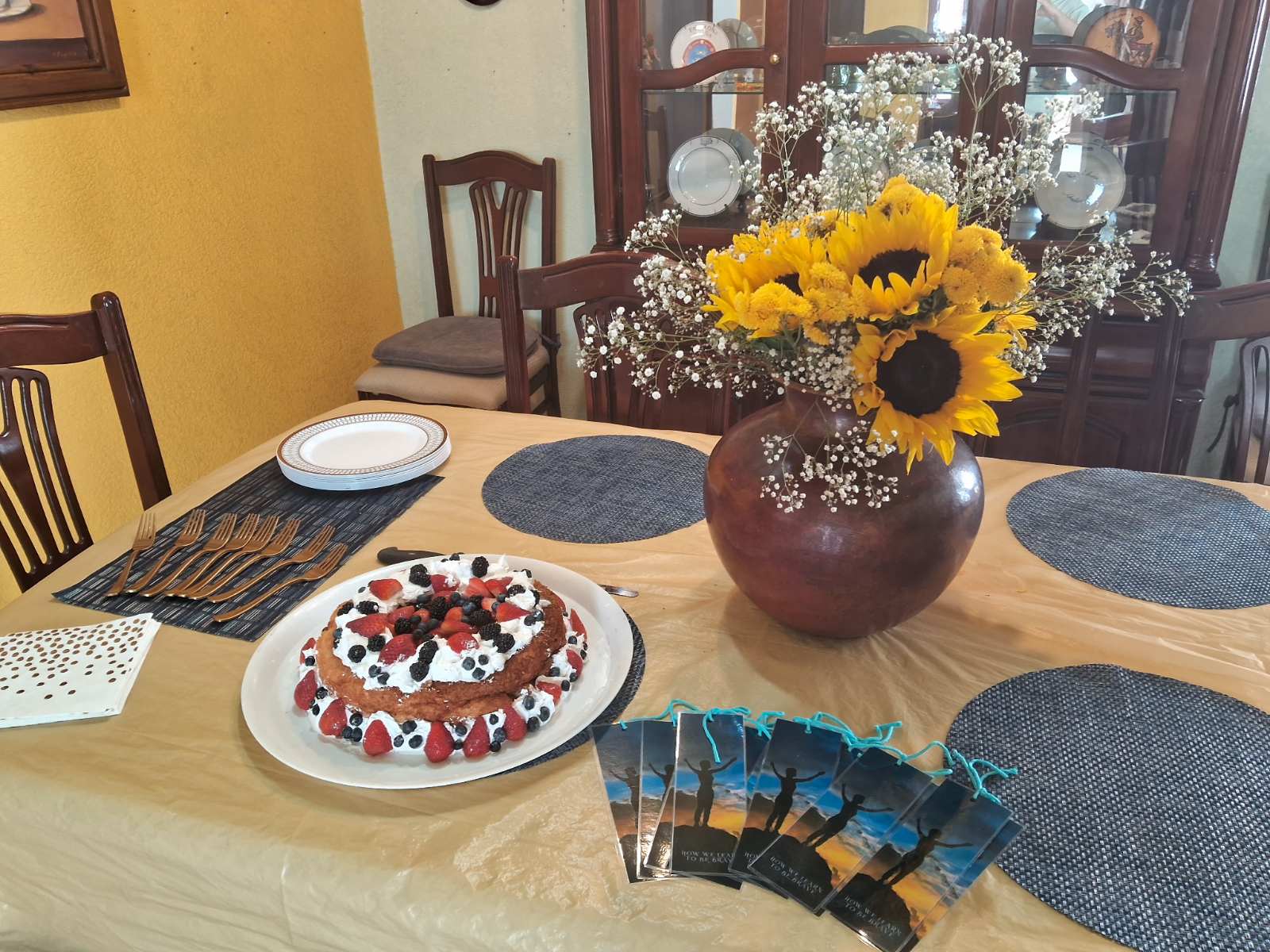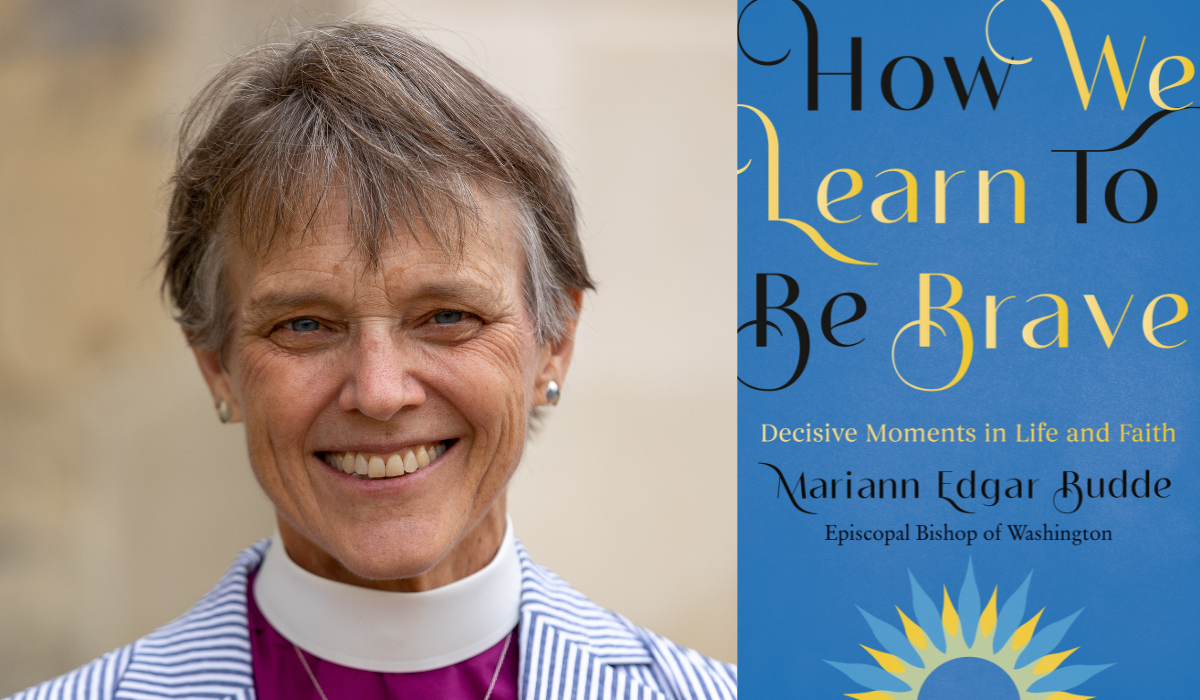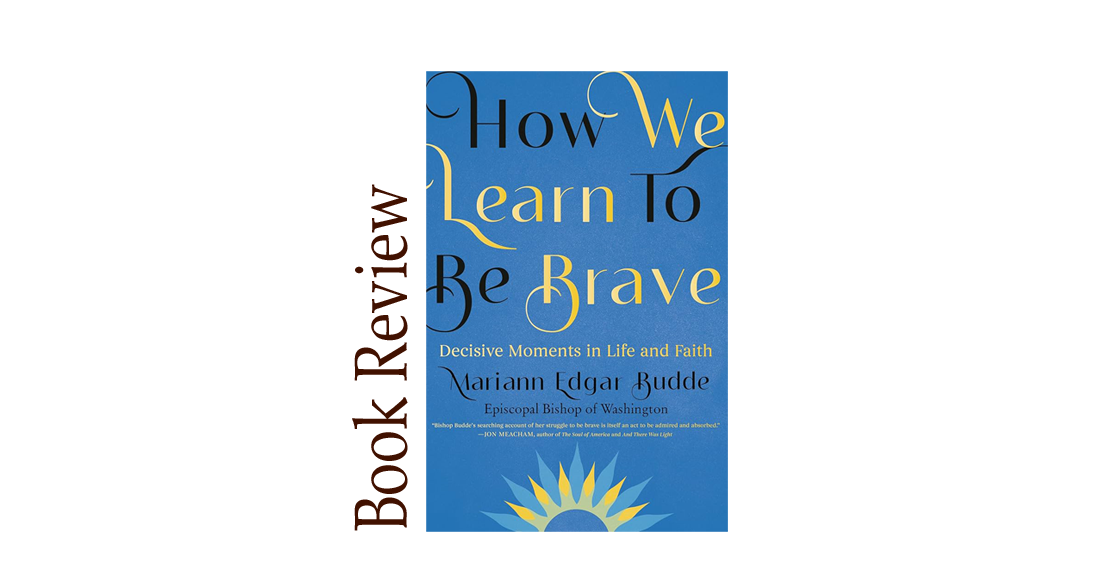- Date Published:
2023 - Length:
224 pages—Listening Time: 6 hrs, 50 minutes - Genre:
Spiritual, Self-Help, Religion - Setting:
United States, Contemporary - Awards:
none - Language:
English, but translated into Spanish as well - Sensitive Aspects
Religious overtones - Recommend for Book Club:
Maybe, some groups may not enjoy the evangelical aspect of this book

Mariann Edgar Budde's book How We Learn to Be Brave: Decisive Moments in Life and Faith explores courage and its role in navigating life's key moments. The book is both a personal reflection and a larger investigation of bravery, drawing on a variety of sources including scripture, history, books, and popular culture.
There is no doubt that Marriann Edgar Budde is a courageous woman. In case you don't recognize her name, she is the Episcopal bishop who has bravely taken a very public stand against Trump...twice.
Back in 2020, Bishop Budde penned an editorial piece in The New York Times, stating she was "outraged" and "horrified" by Mr. Trump's use of the Bible, which he held aloft at St. John's Church after officers fired tear gas against racial justice marchers in neighboring Lafayette Square. She claimed that Mr. Trump "used sacred symbols" while "espousing positions antithetical to the Bible." He also held the "Trump Bible" he was trying to peddle upside down.
Then, the day after Trump's inauguration, from the pulpit at the National Cathedral, Budde made a fervent plea for the new leader to have mercy on the people in our country who are scared now.”
She referenced L.G.B.T.Q. people and immigrants in response to the president's efforts to curb illegal immigration and remove federal protections for transgender individuals. The bishop said that unity required honesty, humility, and recognition of the dignity of all humans by “refusing to mock or discount or demonize.”
Mr. Trump looked down, scowling, throughout the sermon. Seated close by, Vice President JD Vance raised his eyebrows.
As expected, Trump used Truth Social to criticize the "so-called Bishop" as a "radical left hardline Trump hater" and accuse her of taking "her church into the world of politics in a very ungracious way." He criticized her lecture as "nasty in tone," "boring," and "uninspiring," and demanded an apology from her and her congregation.
Again, Mariann Edgar Budde is a brave woman.

How We Learn to be Brave is an inspirational guide that explores the concept of bravery as a continuous journey rather than a singular act. The book delves into various types of decisive moments in life where courage is required, such as deciding to go, stay, start, accept what is not chosen, step up, and persevere.
The key types of bravery include:
- Deciding to Go: Taking bold steps into the unknown.
- Deciding to Stay: Remaining in challenging situations for the greater good.
- Deciding to Start: Initiating new endeavors.
- Accepting What You Do Not Choose: Finding courage in the face of adversity or unexpected circumstances.
- Stepping Up to the Plate: Embracing opportunities to act with courage.
- The Inevitable Letdown: Managing the emotional aftermath of brave actions.
- The Hidden Virtue of Perseverance: Sustaining courage over time.

I would recommend this book for anyone who struggles with taking a stand and coping with day-to-day events that feel overwhelming. And frankly, isn't that everyone?
Budde integrates her own personal experiences with examples from scripture, literature, and pop culture as an appeal to a wide audience. She shares her own vulnerabilities, which is admirable and demonstrates her strength as a leader.
She cites the lives of several leaders whose courage came as a result of struggle and suffering. Martin Luther King's final acts of solidarity are referenced along with biblical figures and people within Budde's church realm.
I particularly liked her emphasis that bravery is not limited to grand acts but also is required in everyday disappointments and challenges. Every reader can relate to this.
However, I felt that there was too much emphasis on the inspirational stories and not enough analysis of the psychological and philosophical aspects of bravery. To me, the examples were limited in that they existed within the realm of the church. Because of this strong religious context, the book may not appeal to or resonate with readers who adhere to a more secular approach to understanding bravery.
I really wish that Budde had written this book after the election, like now. I feel like she would come out with a stronger message today than she had two years ago when the book was published. Despite that, we need all the support and coaching we can get nowadays just to survive.
This is the April read for my local book club. Our group embodies a wide variety of religious beliefs, from Buddhist to agnostic to evangelical to atheist. It will undoubtedly be a lively discussion.

Afternote: We had a wonderful book club meeting about this book. We were a bit nervous because of our varied religious backgrounds, but our discussion was so compelling that no one wanted to leave! And the angel food cake was great too!


Get Bishop Budde's Book
This is one brave woman. One of the best ways to support Mariann Edgar Budde and her ministry is to buy her book.
Bookshop.org was created as a socially conscious alternative to Amazon, with the goal of helping local, independent bookstores thrive. This is why Readers With Wrinkles supports their efforts. Please join us in this effort by purchasing your next read here.

For books similar to Mariann Edgar Budde’s How We Learn to Be Brave—which explores decisive moments in life and faith that shape courage—consider these spiritually resonant and introspective works:
Spiritual Courage and Personal Growth
- Radical Acceptance: Embracing Your Life With the Heart of a Buddha by Tara Brach
Focuses on self-compassion and overcoming fear through mindfulness, ideal for readers seeking spiritual resilience. - Man’s Search for Meaning by Viktor E. Frankl
A memoir of survival in Nazi camps, emphasizing finding purpose in suffering and choosing one’s response to adversity. - Daring Greatly by Brené Brown
Examines vulnerability as a source of strength, with insights on living authentically despite fear. - Braving the Wilderness by Brené Brown
Explores true belonging and the courage to stand alone, aligning with Budde’s themes of faith-driven bravery. - The Alchemist by Paulo Coelho
A parable about pursuing destiny and listening to one’s inner voice, resonating with spiritual self-discovery.
Courage Through Adversity
- The Warsaw Orphan by Kelly Rimmer (historical fiction)
Follows acts of bravery during WWII, paralleling Budde’s focus on moral courage in crisis. - Code Name Sapphire by Pam Jenoff
A WWII resistance story highlighting resilience and sacrifice. - The Big Leap by Gay Hendricks
Addresses overcoming self-imposed limits to achieve personal breakthroughs.
Faith and Decisive Moments
- You Are a Badass® by Jen Sincero
Blends self-help with spiritual principles, encouraging readers to embrace their potential. - Big Magic by Elizabeth Gilbert
Advocates for creative courage and curiosity as tools to confront fear. - How We Learn to Be Brave itself is noted for its focus on pivotal life choices guided by faith, making Budde’s other works, like Gathering Up the Fragments, additional candidates for similar themes.
For memoir-driven spiritual journeys, Tara Westover’s Educated (not listed but thematically relevant) or Mitch Albom’s works may also appeal. Budde’s emphasis on "discernment and faith" aligns most closely with Brach and Brown’s reflective approaches to courage.


Comments